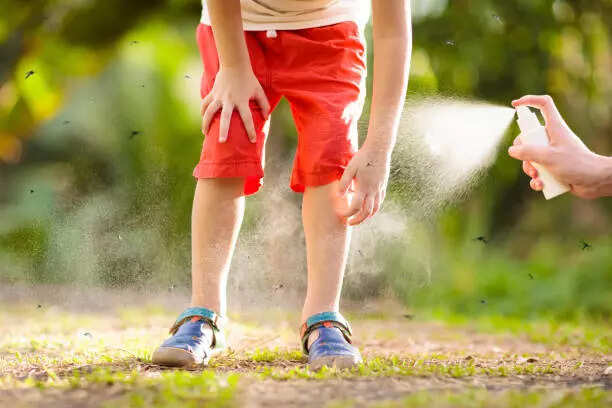- Industry
- 2 min read
Study sheds light on severity of both primary and secondary dengue infection in kids
Published in Nature Medicine this week, the analysis of severe dengue cases in a large group of children in India has shown that more than half could be attributed to primary rather than secondary infection.
Published in Nature Medicine this week, the analysis of severe dengue cases in a large group of children in India has shown that more than half could be attributed to primary rather than secondary infection. Dr Anmol Chandele, Group Leader of the ICGEB-Emory Vaccine Program at ICGEB New Delhi, India, in collaboration with Emory School of Medicine, Atlanta, GA, USA, the All India Institute Of Medical Sciences AIIMS, New Delhi, and St. John's National Academy of Health Sciences, Bengaluru, India has authored the paper on "Severe disease during both primary and secondary virus infections in pediatric populations."
Over the past two decades, dengue infections have greatly increased in India, and India now has one of the largest numbers of dengue cases globally. Dengue is a global epidemic causing over 100 million cases annually. This mosquito-borne viral infection, presents a significant public health challenge in tropical and subtropical regions worldwide.
Transmitted primarily by the Aedes aegypti mosquito, dengue fever manifests with symptoms such as high fever, severe headache, joint pain, and rash. In severe cases, dengue can lead to life-threatening complications such as dengue hemorrhagic fever or dengue shock syndrome, characterised by bleeding, organ impairment, and dangerously low blood pressure.
With 4 serotypes of the dengue virus circulating, typically, dengue patients fall into two categories- those experiencing the infection for the first time, known as primary infections, and those, who get re-infected after a previous exposure, known as secondary infections. Traditionally, the prevailing belief has been that only secondary infections pose significant risks, leading much of the research into vaccine development and treatment to focus on this group.
But now this widely held perception seems to have lost its ground. The study by Delhi-based scientists based on a wide sampling approach has shown that it is not just the secondary infections but the primary infections as well which can be severe and could jeopardise the life of the patients. This finding suggests a need to reevaluate our understanding of dengue and the strategies employed to combat it.
Dr Chandele states: "Dengue virus infection is a huge public health problem in India. Many patients develop severe disease that can also be sometimes fatal. However, much of the ongoing vaccine intervention research is based on the currently widely held global belief that primary dengue infections are not usually dangerous and that the severe dengue disease is mainly due to secondary dengue infections." She continues: "Our study questions this currently widely held belief and shows that primary infections constitute a substantial fraction of severe disease cases and fatalities."



COMMENTS
All Comments
By commenting, you agree to the Prohibited Content Policy
PostBy commenting, you agree to the Prohibited Content Policy
PostFind this Comment Offensive?
Choose your reason below and click on the submit button. This will alert our moderators to take actions